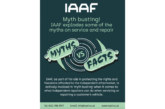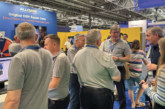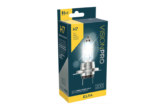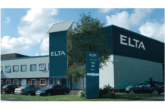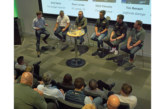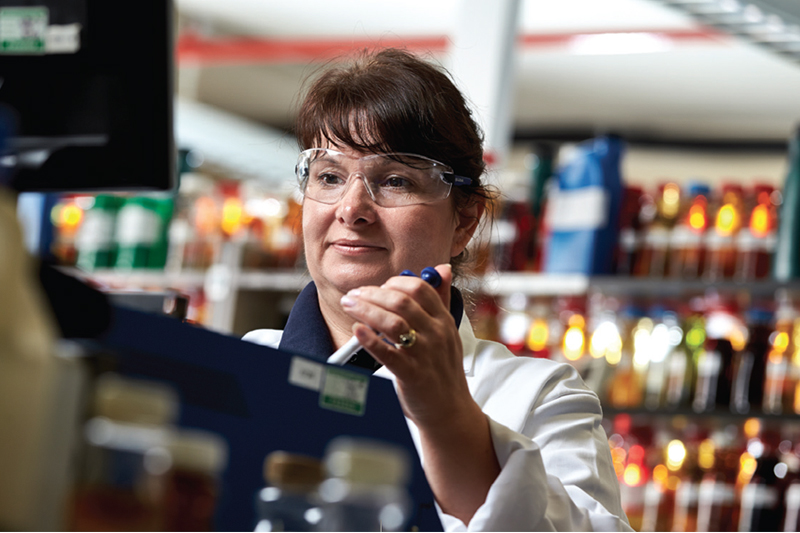
PMF gets an inside look at what goes on in the Morris Lubricants laboratory.
Darrell Bates flicks on the lights and lets the Morris Lubricants laboratory door close firmly behind him. It’s 7am, and he is the first to arrive.
The room is cool and will stay that way to protect the integrity of samples – over 5,000 are tested and processed here every month. The ambient air-conditioned environment is also a critical safeguard against overheating which could impact the performance of equipment and computer systems.
On shelves and in cabinets, there are rows of neatly arranged bottles. Some are marked hazardous, others wait in line for examination, but until Laboratory Supervisor Darrell has run a series of instrument calibration tests, they will remain on the to-do list.
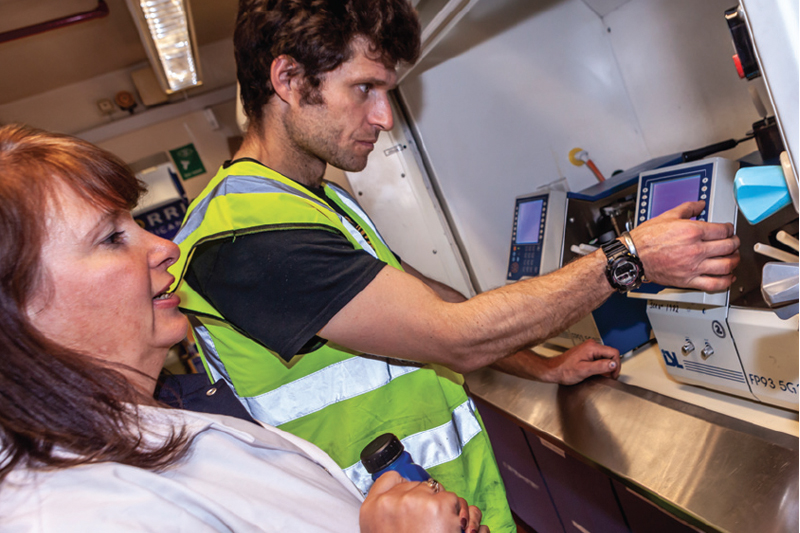
Employing the use of specialist fluids and internal oil samples, it is Darrell’s responsibility to make sure everything in the lab is fully functional and ready for the day ahead. After that, a digital Laboratory Information Management System (LIMS) will take over to track, log and analyse data, flagging any inconsistencies or anomalies that might be indicative of an issue.
Darrell, who heads a team of four, and has been with Morris Lubricants for a total of 32 years, says despite significant advancements in technology during this time, it’s the staff, including Lab Chemist Thomas Roycroft, which are “the most impressive kit in the laboratory”. Their wellbeing, he says, comes above all else.
“Within a family-owned company, you are a person, not a number,” he commented. “We have numerous solvents, acids and alkalis, naked flames and other reagents that have to be used correctly, and with the appropriate personal protective equipment. We also have to social distance and mask up when necessary, with plenty of hand washing and sanitising.”
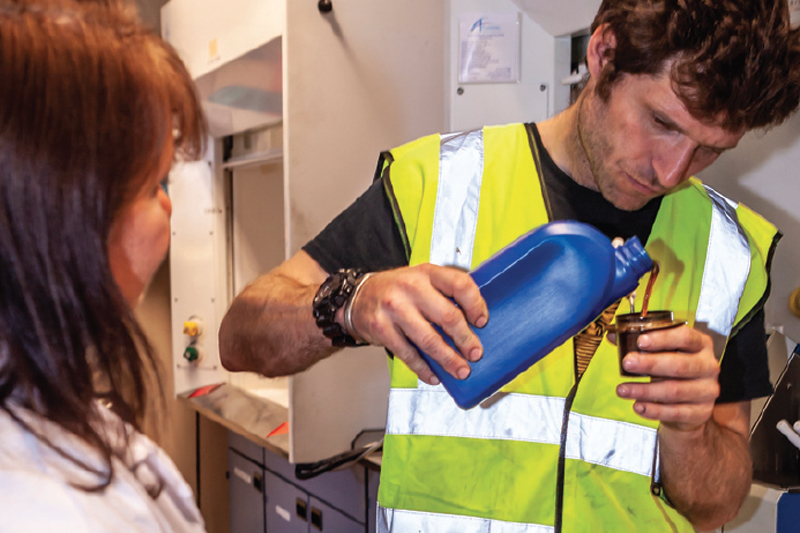
Dedicated to three key areas – Product Quality Control, Equipment Condition Monitoring and Product Investigation – and with approximately 650 active formulations in the company’s catalogue, the department’s capacity and capability for testing and product development is considerable. Committed investment in the latest, most-advanced equipment and technologies is a key factor.
“As lubricant specifications move on and become more complex, they often dictate new test methods which require new equipment,” added Andy Litchfield, who in his role as Technical Director, oversees the laboratory and technical teams, which work together on research, new formulations and day-to-day testing.
“The Morris family have always purchased what is required because product quality is key to the success of the company, and without the correct test equipment you cannot guarantee the highest quality. Their support allows us to keep up to date and compliant with new and evolving demands.”
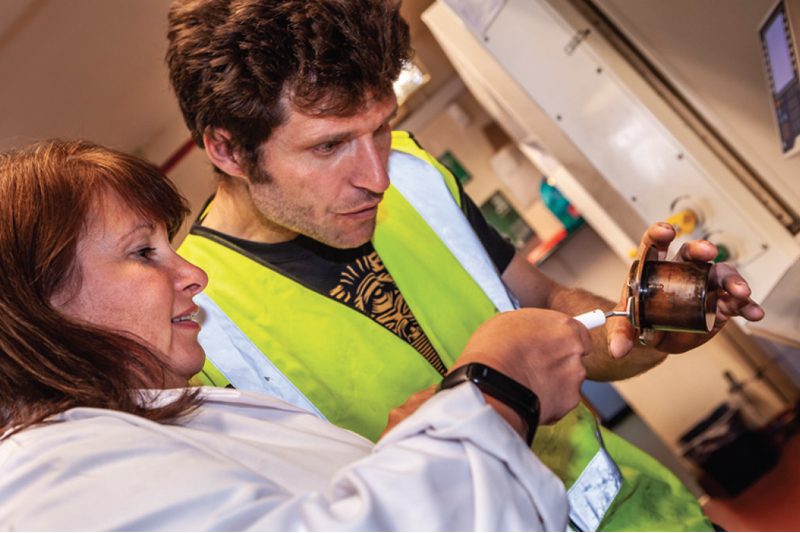
With a combined cost of approximately £75,000, recent upgrades include a new Fourier Transform Infrared Spectrometer (FTIR), which is used to identify organic materials, and an X-Ray Fluorescence (XRF) machine, which measures elemental content to help the team ensure they are adding the correct amount of performance additive, which can often contain elements such as calcium or zinc.
Operating a staggered shift pattern, the laboratory team processes incoming and outgoing materials throughout the working day. Samples arrive from on-site locations such as blending tanks and filling lines, as well as from customers out in the field. Darrell added, “We test empty tankers as well as deliveries for moisture and cleanliness. Our products are tested all the way through the process of production, guaranteeing quality to the end user.”
Methods of testing can range from a simple ‘appearance’ assessment that evaluates a lubricant’s clarity, colour, texture and smell in minutes, to a more complex, temperature dependent analysis, which can take up to three days.
Two years into his role as Lab Chemist, it’s this comprehensive level of investigation, as well as that of product development, that has surpassed Thomas Roycroft’s hopes of what his role would entail.
“I wanted to diversify, enhance and develop the skills I had gained so far,” said Thomas, who has combined learning on the job with the training offered by the company in partnership with the United Kingdom Lubricants Association.
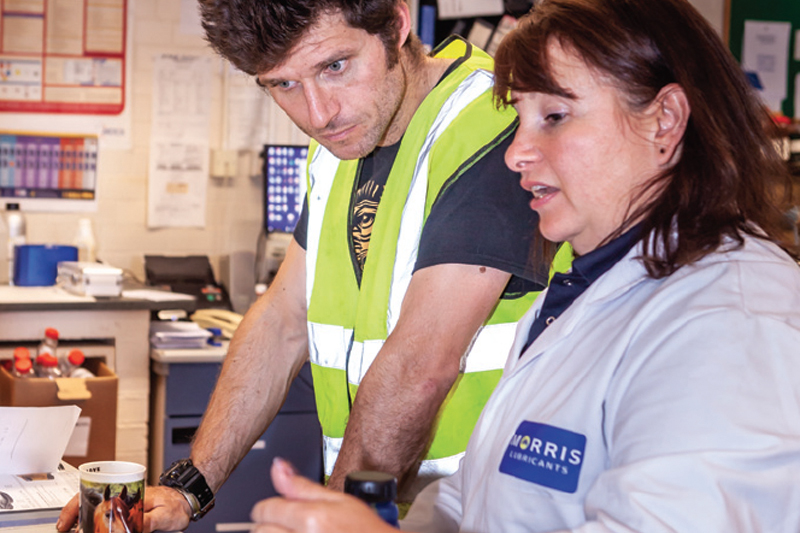
“The depth of processes required from start to finish when we’re formulating our products has surpassed my expectations. Certain products have a vast number of raw materials that need to go in for the oil to meet the performance demands that it will endure in its lifetime.
“This therefore requires an extensive test suite: from boiling point checks, running a viscosity check at -40°C, seeing how it fares against corrosion, the list goes on. Only then, once everything has been given the all clear, we can ship out to customers knowing that it’s going to exceed requirements and excel in the application that it is going to be required to go in.”
With three decades of experience at Morris Lubricants, Andy Litchfield has been integral to building and maintaining the company’s reputation for producing quality oil. A fundamental part of this, he believes, must be attributed to using high quality base oils and additives, and he commented: “If you are formulating something, you need to have a very good understanding of what is available to make that product, depending on what properties you want it to have.”
According to Andy, a benchmark of the company’s success is the strong relationship built with leading base oil suppliers. “The quality goes back to the very start, in terms of the raw materials that we buy. We work closely with respected and globally recognised base oil and additive providers to develop the correct formulations for our products, so our products can be trusted to be fully supported by testing and validations.”
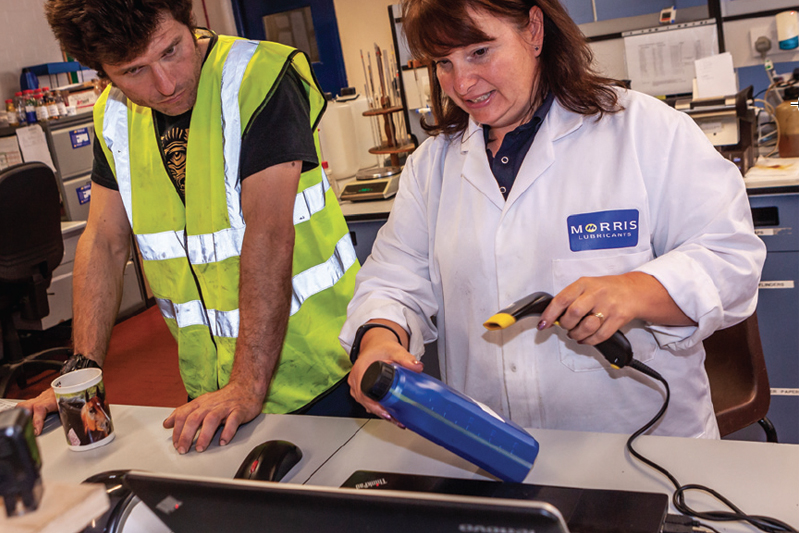
With much of the laboratory team’s work taking place behind the scenes, occasionally a VIP will knock at the door hoping for a sneak peek. Happy to oblige – before the pandemic – the team have welcomed Princess Anne, Suggs from Madness, and Guy Martin.
“Guy’s reaction to the lab was a great compliment,” said Automotive Product Manager, Adrian Hill, who gave the Morris Lubricants Racing Ambassador his tour.
“There’s no doubt our enthusiasm is infectious, but when you are talking to someone as knowledgeable as Guy, and you see how surprised he was by the extent to which we test the products to ensure quality and performance with every batch we make, that really is an endorsement of the work we do here.”
Reflecting on his visit, Guy noted how the reality far exceeded his expectation that “it was just a few blokes in a shed in Shrewsbury.”
He added, “The lab is immaculate. I saw what they’re doing and thought, ‘you’re not messing about are you?’ When you see what goes into the blending and testing of the oils it’s amazing.”


